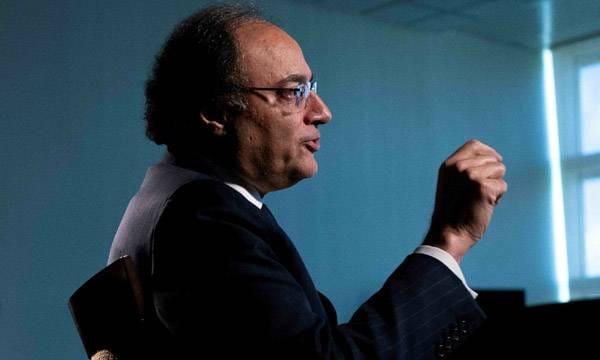Aurangzeb briefs global wizards on Pak economic priorities

Source: The Nation
ISLAMABAD - Federal Minister for Finance and Revenue, Muhammad Aurangzeb, met with representatives from Moody's Investor Service on the sidelines of the World Bank Group-IMF Spring Meetings in Washington D.C. During the meeting, the Finance Minister briefed Moody's on Pakistan's key economic indicators and macro-economic stabilization achieved after entering into a Stand-by Arrangement (SBA) with International Monetary Fund (IMF).
He highlighted the government's key priorities including tax and energy sector reforms, as well as the privatization agenda.
The Finance Minister indicated the government's intention of tapping international capital markets, with a focus on the Middle East and China, to support Pakistan's economic growth and development. He also addressed questions related to inflation, foreign exchange reserves, debt repayments, external account vulnerability, and domestic liquidity and expressed confidence in the government's ability to address these challenges and create an environment conducive to sustainable economic growth.
He hoped that Moody's Investor Service would upgrade Pakistan's credit rating soon, reflecting the country's improved economic fundamentals and government's commitment to reforms.
He attended an important "Roundtable with Investors" to highlight Pakistan's stable macroeconomic indicators and outlined the government's reform agenda. He apprised the investors of Pakistan's declining inflation rates, stable currency, robust growth in the agriculture sector, strong remittance inflows, rising forex reserves, and a buoyant stock market. These positive indicators, he added, underscored the country's improved economic outlook.
He stated the government's intention to enter into a larger and extended program with the International Monetary Fund (IMF), building upon the successful Stand-By Arrangement (SBA). He also discussed key priorities of the government around taxation, energy sector reforms, and privatization program.
He noted that the World Bank's focus on climate change, digitalization, and human capital development aligned well with government's priorities. Investors appreciated the government's efforts to stabilize the economy and expressed keen interest in exploring potential investment opportunities in Pakistan.
The Finance Minister also met with Sultan Abdulrahman Al-Marshad, CEO of the Saudi Fund for Development (SFD), to discuss potential avenues for enhanced economic cooperation between Pakistan and Saudi Arabia. During the meeting, Finance Minister briefed Mr. Al-Marshad on his recent visit to Saudi Arabia as well as the recent visit of a high-level Saudi delegation to Pakistan. Both sides reviewed and expressed satisfaction with the progress of ongoing development projects.
The Finance Minister also discussed funding of ongoing projects, including Diamer Bhasha Dam and the N-25 highway from Karachi to Chaman. He assured that Pakistan would pitch bankable and investable projects to Saudi investors, highlighting the country's investment potential and favorable policies.
The Finance Minister also met with Mr. Andrew Mitchell, UK's Minister of State for Development and Africa. During the meeting, the Minister acknowledged the long-standing relations between Pakistan and the UK rooted in shared history and mutual understanding. He expressed gratitude for UK's support in areas such as education, health, financial management, and governance. Finance Minister briefed him on the favourable economic indicators of the country and priority areas of taxation, energy sector and SOE reforms and highlighted government's efforts to create a conducive environment for foreign investment and economic growth, transparency, and inclusive participation. He also invited British International Investment (BII) to invest in bankable projects in Pakistan and thanked UK Minister for planning a visit to Pakistan in August 2024.
